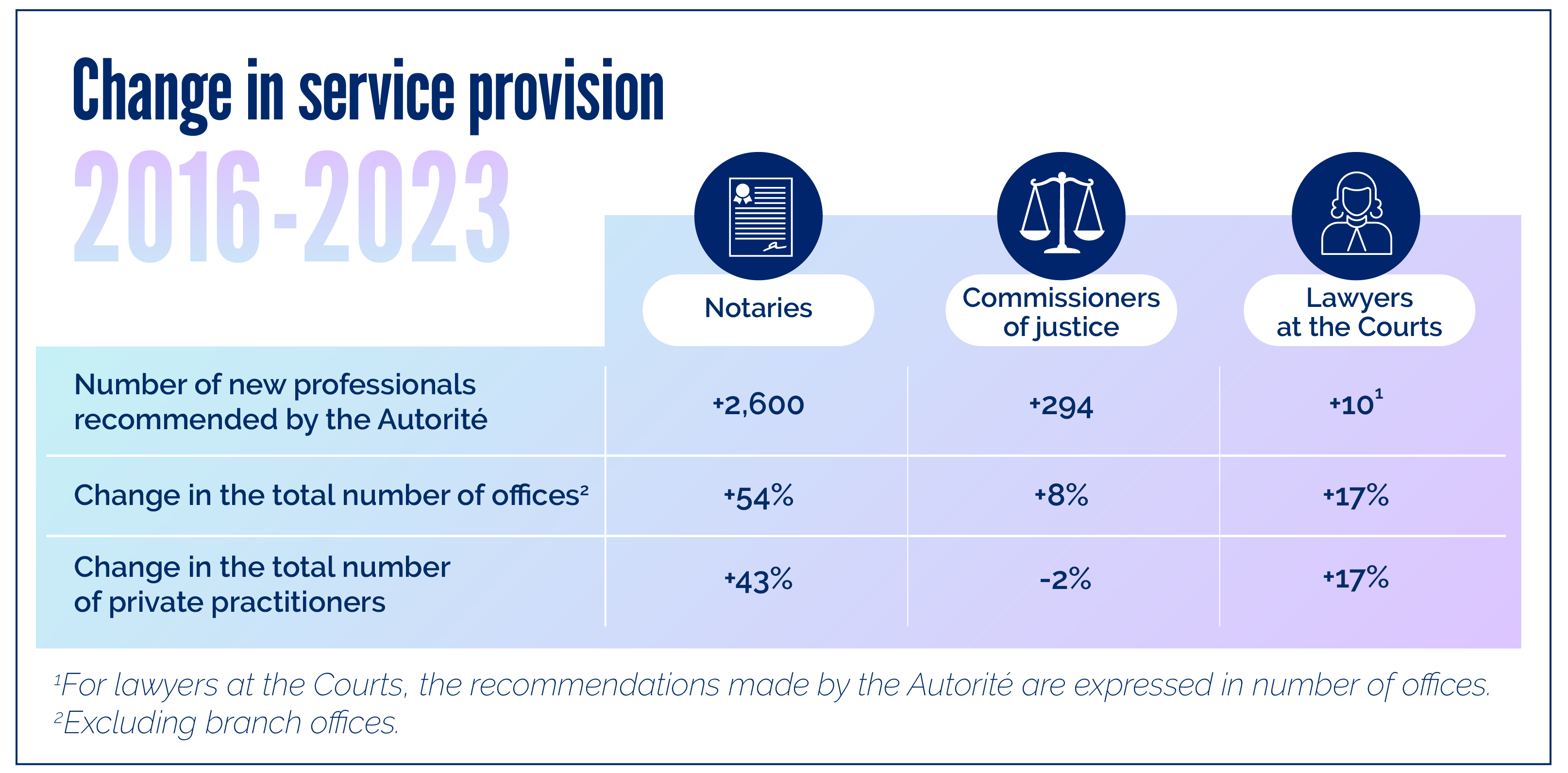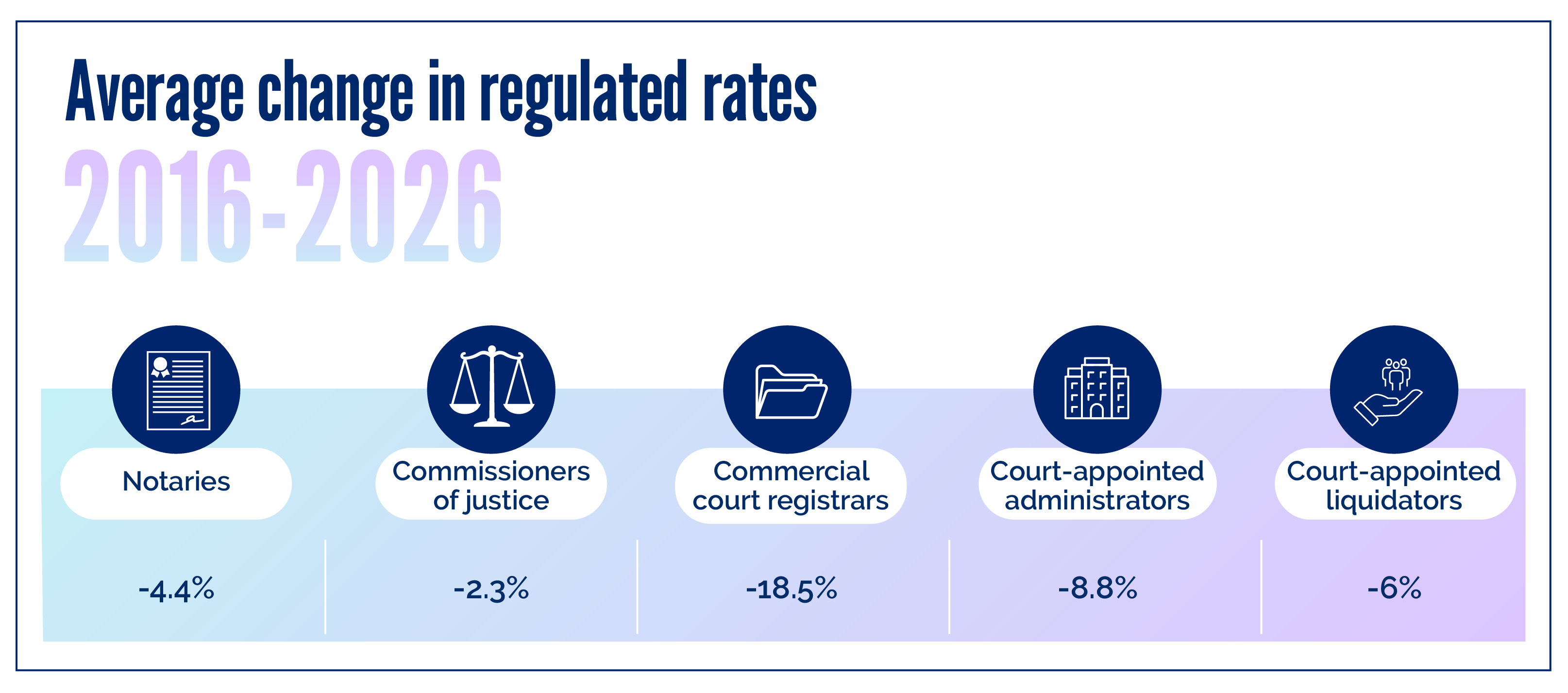The Autorité de la concurrence starts inquiries ex officio to assess the reforms of the conditions of establishment and rates for the regulated legal professions introduced by the 2015 Law for Growth and Activity

As we approach the 10th anniversary of the adoption of French law 2015-990 of 6 August 2015 for Growth, Activity and Equal Economic Opportunities (hereinafter the “Law for Growth and Activity”), the Autorité de la concurrence (hereinafter the “Autorité”) wants to assess the effects on competition of certain mechanisms introduced by the law, in whose implementation the Autorité plays a major role.
The Law for Growth and Activity has led to a profound change in the legal framework applicable to certain regulated legal professions, resulting in a significant increase in the number of offices and professionals and a reduction in their regulated rates. For example, the law led to an approximately 40% increase in the number of notaries between 2016 and 2023.
In accordance with the provisions of Article L. 462-4 of the French Commercial Code (Code de commerce), the Autorité has therefore decided to start inquiries ex officio with a view to issuing an opinion assessing the reforms of the conditions of establishment and rates for the regulated legal professions introduced by the Law for Growth and Activity.
Assessment of the reform of the conditions of establishment of professionals
The Law for Growth and Activity introduced the principle of regulated freedom of establishment aimed at promoting access to the professions concerned[1], in particular for young graduates and women, while guaranteeing the geographical coverage and viability of existing offices.
Since 2016, the Autorité has issued opinions every two years on the freedom of establishment of notaries, commissioners of justice[2] and lawyers at the French Administrative Supreme Court (Conseil d’État) and the French Supreme Court (Cour de cassation) (hereinafter “lawyers to the Courts”). Based on the opinions and accompanying quantified recommendations, the French Ministers of the Economy and Justice created new offices – in different proportions for each profession – over the period 2016-2023[3] :

The purpose of the new opinion to be prepared by the Autorité will therefore be to assess the impact of the new offices on competition and the achievement of the objectives set by the legislator.
Assessment of the reform of regulated rates
Another major contribution of the Law for Growth and Activity is that the rates charged by the regulated legal professions must now take account of “the main costs of providing the service, while ensuring reasonable remuneration for professionals”[4], and are reviewed every two years[5].
Further to an opinion issued by the Autorité, the method defined by the French government to achieve such cost-orientation has led to reductions in the rates charged of varying degrees depending on the professions, given the disparity between the economic situations found.

The purpose of the new opinion will therefore be to examine whether the new rate revision method has achieved the objective of more transparent and fairer pricing for professionals.
Possible reform developments
Lastly, the Autorité will examine the changes that have occurred since 2016 that are likely to affect its action with regard to the reforms introduced by the Law for Growth and Activity, as well as possible modifications of the reforms concerned, in order to ensure the reforms continue to bear fruit.
The Autorité will issue the final conclusions of its inquiry in summer 2025.
[1] See, in particular, Articles L. 462-1 and L. 462-4-2 of the French Commercial Code (Code de commerce).
[2] Since 1 July 2022, court bailiffs and judicial auctioneers have formed the new profession of commissioner of justice.
[3] The infographic does not include the recommendations issued by the Autorité for the period 2023-2025.
[4] Article L. 444-5 of the French Commercial Code (Code de commerce).
[5] Articles L. 444-2 and L. 444-4 of the French Commercial Code (Code de commerce).
Contact(s)
